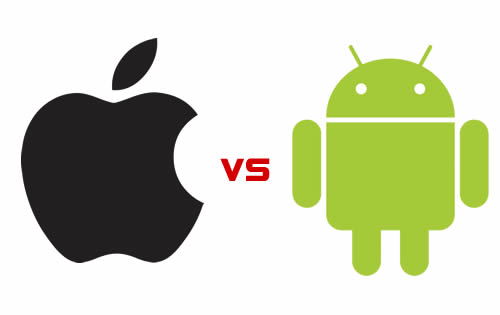Apple iPhone, Android, Backup Appliances, and Backup Software [Part 2]

So in my last blog post we talked about the preferences of the buyer being the key attribute with respect to what is “better” – whether it’s smartphones or backup appliances versus backup software.
So let’s go back to smartphones. Here are some of the questions I ask family members who ask me what kind of smartphone should they get:
- How important is an integrated, seamless user experience to you?
- How important is having leading-edge features to you?
- How important is flexibility with respect to different form factors and underlying hardware capabilities?
- How important is it that you can self-service and change the hardware (e.g., change the batteries yourself, etc.)?
Pretty standard questions, right? Apple iPhones are vertically-integrated devices in which all of the software and hardware come from the same manufacturer and are precisely tuned to work together. That means that the ease of use and consistent seamless integration are superior to anything on the market. Apple provides everything.
Conversely, Google provides the Android platform to multiple smartphone hardware vendors. The one having the most success is Samsung. Samsung has smartphones with leading edge features – such as the large screen on the Samsung Galaxy S3. But I can pick different hardware platforms, from Samsung and other cellphone vendors, and get different features – I have that flexibility. Finally, I can get hardware on an Android cellphone that I can self-service – I don’t have to send my cellphone back to its manufacturer for a battery change.
This is almost precisely the types of questions you have to ask to understand whether a physical backup appliance or a virtual backup appliance is best for you. If you want an integrated all-in-one backup solution – in which not only the hardware and software are integrated but the responsive and proactive support is as well – then a physical backup appliance makes sense. (Note: What we mean by proactive support is that the system is monitored and a support engineer calls you before a disk fails – that kind of thing.) The bottom line of a physical backup appliance is the concept that your greatest desire is to forget about backup – you want to focus on other things.
On the other hand, a virtual backup appliance gives you more freedom. You still don’t need to worry about all of the details of backup software executables (operating system versions, databases, antivirus, the software executable itself, etc.) – but you’re able to choose the underlying hardware and the hypervisor you wish to use. Thus if you want a RAID-10 instead of a RAID-6, you can choose that.
So that’s how iPhones, Android, backup appliances, and backup software are alike.
What do you think? Am I missing something here?

